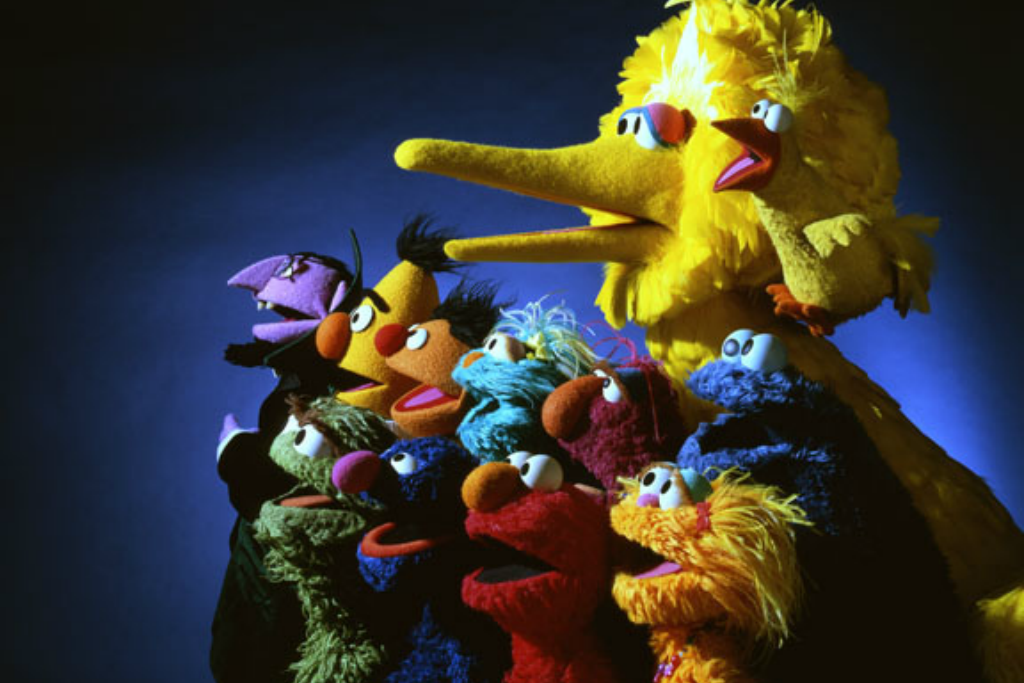Sesame Street Has Become TV’s Most Unlikely Home Of Parody-Based Satirical Genius
And it teaches you how to count, too.

Sesame Street has been kind of great in the last decade. From introducing a character that’s HIV-positive, to making cookies a sometimes food, to helping children cope with separation of parents who are incarcerated or in the military, Sesame Street is far from a show that’s just about numbers and letters. With 118 Emmy awards, and nominations for 268, as well as winning a lifetime achievement award, at 45, the show’s at least proven that it’s still hip to be a square.

It’s also had a longstanding love for celebrity, an element probably more entertaining for parents whose lives are now brought to them by the letters S.T.R.E.S.S.E.D. and T.I.R.E.D.

More recently though, Sesame Street has been bringing it with their parodies of very adult shows like Sons Of Anarchy, Grey’s Anatomy, and Downton Abbey. Sesame Street head writer Joseph Mazzarino attributes the sophisticated comedy to the show’s co-viewing ethos: “there’s no better way for the child to get the concepts we’re giving them than when they’re sitting down with their parents, watching. As a parent myself, I can say that if you’re sitting down for a lot of kids’ shows, you kind of tune it out a little bit or get bored, but if all of a sudden there’s a Sookie muppet up there [from True Blood], you might think, ‘Oh, that’s pretty cool. That looks just like her,’” he told Vulture.
Another of the show’s writers, Belinda Ward, told Variety that the secret lies in thinking about what appeals to an adult comedic sense and then working out how to make it appropriate for children, “I don’t think any of us thinks about writing for children as much as you think about what makes you laugh and what’s the funniest idea. And then you find a way to make that idea simple enough for kids. Kids are people, after all.”
Desperate Houseplants, a sketch about two houseplants that are neglected and in need of sun and water, sees Sesame Street skilfully delve into sexual innuendo for the older part of the audience while showing children the importance of caring for something.


While Homelamb manages to skilfully use every sheep pun known to lamb and to subversively take on America’s fears of the Big Bad (Islamic) Wolf at the same time. “Baa-rody is not the sheep you think he is” bleets agent Caaa-rie, “have you ever heard a sheep howl?” The dialogue pokes fun at deep-seated fears from the American public of anything that looks or sounds Islamic.

Not all of the parodies are there to tackle a hefty issue; some are just downright cute and clever. Special mentions go to True Mud, Birdwalk Empire and House of Bricks, which not only capture the true essence of the shows they are parodying but have amazing opening credits.
However, Sesame Street’s pièce de résistance is the existential masterpiece Big Bird Man or (The Unexpected Virtue of the Orange Pants), which sees Big Bird haunting the man inside of him, Caroll Spinney. The two question: “How many different ways can you learn the alphabet? How did we get here? How do we get to Sesame Street?”
While I doubt that many a five-year-old will fully grasp the concept of Big Bird Man, it’s nice to think that children are being exposed to interesting, age-appropriate, challenging content from the outset. Perhaps this will aid in cultivating a new witty and deep-thinking generation, or maybe it’ll just help a few parents get through the day.
This post was brought to you by the letter J.